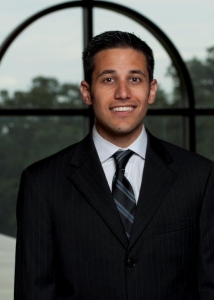
Frank Orlando
Instructor of political science
Faculty expert on American politics
Pope Francis’ encyclical on the environment, Laudato Si, is winning plaudits for adhering to mainstream scientific belief on climate change and calling attention to its disproportionate effect on the poor. What effect will this have on the American political landscape? Pope Francis has maintained a high approval rating throughout his first two years as the Bishop of Rome. Parallels can be drawn between the way that President Obama used broad public support at the beginning of his term to pass the Affordable Care Act and the Holy Father’s attempt to influence the climate debate ahead of key meetings this year. While it is likely that Laudato Si will raise the salience of the issue for the American public, I believe that it will do more to change the pope’s approval ratings than alter opinions on climate change.
Despite the fact that Pope Francis has presented a cautious and complex document, most citizens will receive takeaway messages filtered through opinion leaders in a polarized context. Democrats will point to the pope as an example of the moral imperative of action on the issue. This may excite those who already believed something needed to be done and cause them to hold the pope in greater esteem, but the effect will be reversed for those who think the issue is overblown.
Voters are more closely tied to their party identification than religious affiliation. When these two identities are in opposition, they are more likely to dismiss the religious argument than their party’s platform.
At the margin, there will be some Catholic voters who shift their opinion on the issue, especially with the pope’s historic swing through the United States scheduled for this fall, but it would be out of step to expect a groundswell, at least in the short term. Over time, opinions on issues do change as a preponderance of elites change, and the pope is still a strong voice. Still, unless Francis can change the tune of influential Republican skeptics, the impact this summer will be minimal.
(Editor’s note: Frank Orlando helped craft the SLU Polling Institute’s spring survey of Americans and Floridians on their attitudes toward global climate change. The pertinent news stories and poll reports are all available on this site under the dates April 2, 2015, and April 6, 2015.)
By: Frank Orlando
Media Contacts: Kim Payne, staff writer and media coordinator, at kim.payne@saintleo.edu or (352) 588-7233/(717) 798-1508 or Jo-Ann Johnston, academic communications manager, at jo-ann.johnston@saintleo.edu or (352) 588-8237/(352) 467-0843.
